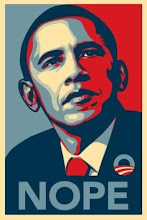Without question, the Barack Obama infomercial served as a very slick and powerful recitation of the biggest promises he's made as a presidential candidate. But the very bigness of his ideas is the problem: he seems blind to the concept his numbers don't add up. Obama has already proposed a new stimulus package of $188 billion over two years. His tax cuts will cost $85 billion a year. His "army of new teachers": $18 billion; Renewable energy: $15 billion. CBS News and various independent experts estimate Obama's total first year spending could exceed $280 billion. Still Obama repeated his claim he can find the money to pay for every proposal. "I've offered spending cuts above and beyond their cost," he has said. The fact is the savings Obama has identified do not cover his spending.
According to a CBS News estimate, he's around $90 billion short. The Obama campaign disputes this, saying everything including the stimulus is paid for over 10 years. But other analysts say - even presuming Obama saves money in Iraq and chops the federal budget as promised - he falls short. Let's break all of this down, starting with his highly suspect, and widely discredited, claim that he can find federal "spending cuts beyond the costs" of his promises. Very few independent economists believe he has identified the savings needed to offset his remarkable list of tax credits, tax cuts and spending pledges.
Fact: Even if you believe Obama intends to fix health care, most independent analysts say the cost is massive - $1.2 trillion over ten years, according to the highly respected Lewin Group. When the new Congress wakes up next year to a $1 trillion deficit, and answers the overwhelming new demands for another stimulus package, will the leadership really bite on a health care reform package that digs the deficit hole so much deeper? And that's just the beginning of what Obama would spend.
Fact: The tax cuts he promises, which are mostly refundable tax credits (code for cash back), will cost $60 billion just in year one, according the National Taxpayers Union, though the Obama campaign's own estimates in July put that figure at $130 billion.
Fact: His new promise to give businesses a $3,000 tax credit for each new job created will cost $40 billion. But economists say this credit is far more likely to benefit companies already planning to expand and will likely not be enough to help companies create new jobs or forestall layoffs.
Fact: Obama's claim he will lower health care premiums by $2,500 is: 1.) guesswork, which is 2.) based on health care savings that might, in a perfect world, happen over 10 years - a fact Obama neatly glosses over.
Fact: Obama, when referring to savings he can make by leaving Iraq ($90 billion, according to Congressional Budget Office estimates), has spent these savings several times over, across several different promises depending on the crowd he's addressing. Most of the time he spends the Iraq savings in the context of the roads he wants to build; sometimes it's for the teachers he wants to hire. Tonight, he riffed rhetorically on the savings, asking how many scholarships could be funded, or how many schools could be built. In the end though, presuming he really saves $90 billion, he can only spend it once. Remember he also mentioned rebuilding the military ($7 billion/yr); his education initiative ($18 billion/yr); and his energy initiative ($15 billion/yr). He did not mention the $188 billion that he would spend on the brand new stimulus package he has proposed.
If he closes every loophole as promised, saves every dime from Iraq, raises taxes on the rich and trims the federal budget as he's promised to do "line by line," he still doesn't pay for his list. If he's elected, the first fact hitting his desk will be the figure projecting how much less of a budget he has to work with - thanks to the recession. He gave us a very compelling vision with his ad buy tonight. What he did not give us was any hint of the cold reality he's facing or a sense of how he might prioritize his promises if voters trust him with the White House.
http://www.cbsnews.com/stories/2008/10/29/eveningnews/realitycheck/main4557520.shtml
Subscribe to:
Post Comments (Atom)





No comments:
Post a Comment